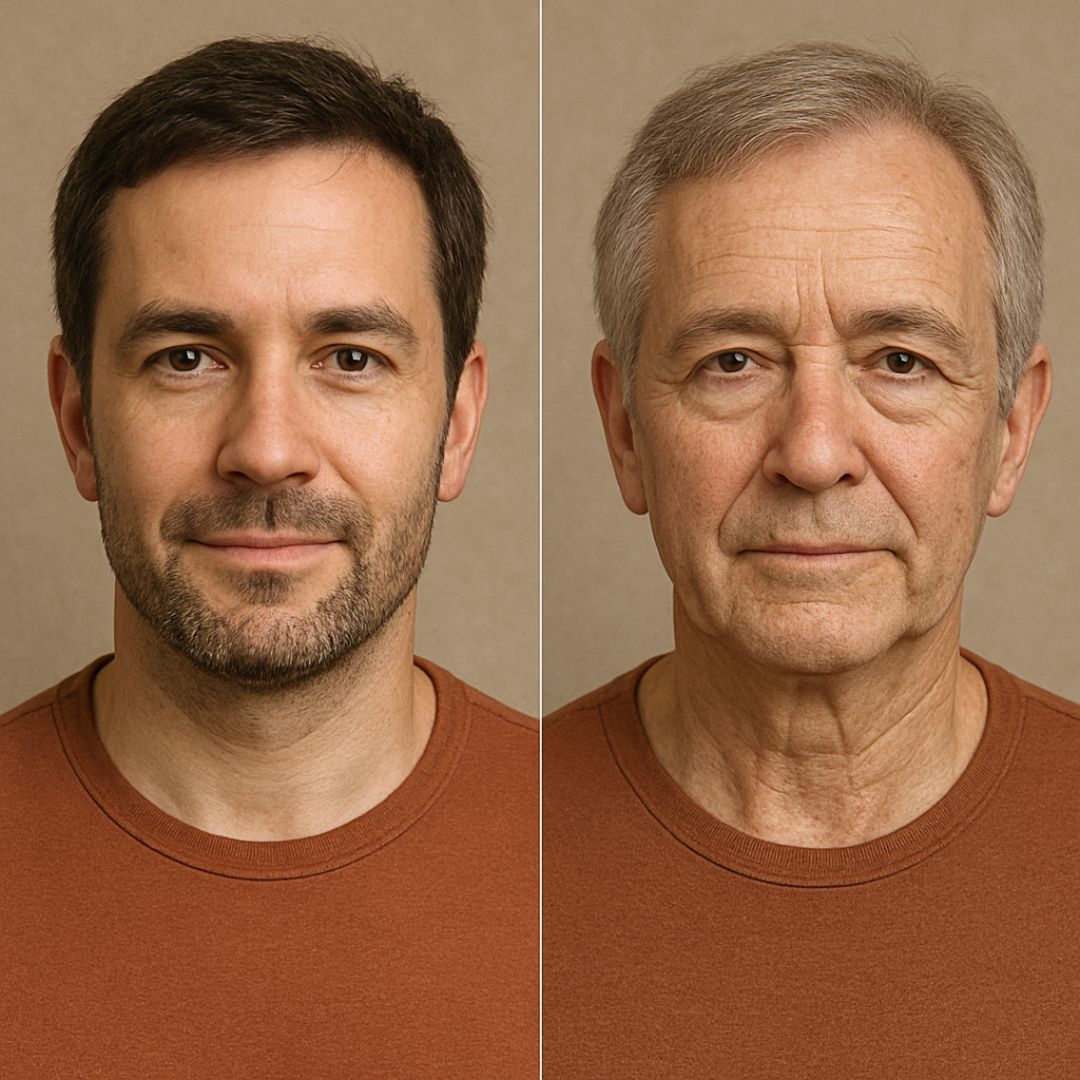When Do You Start To Feel The Effects Of Aging?
Let’s begin with the inconvenient truth no one quite tells you in your twenties - aging doesn’t wait for a big moment. It doesn’t throw you a surprise party with a cake shaped like a knee brace or wake you up on your 40th birthday with a sore back and no explanation. Instead, what it actually does is tiptoe in quietly and play around with your cellular blueprint while you’re busy living your life. It does this by making subtle adjustments to your energy, skin, digestion, mood and metabolism until one day you’re squinting at a screen you once read with ease or wondering when you became the kind of person who checks restaurant menus for fibre content.
But here’s where the plot twist lives. Just because you can’t see aging happen, doesn’t mean it’s not negotiable, because it absolutely is and the question worth asking isn’t when it starts, but how you’re dealing with it when it does.
Aging Genetics vs. Lifestyle
Sure, your DNA might hand you a few cards at the table, but lifestyle is how you play those cards and that includes the meals you eat when no one's watching, how often you move your body when it’s tempting to stay horizontal, how well you sleep when scrolling is easier than resting, and how you speak to yourself when things don’t go your way. Your choices, more than your chromosomes, shape the speed and the flavour of your aging.
Healthy Longevity Habits
Let’s clear something up quickly - you don’t need to drink green sludge, lift tyres or start every morning with a cold plunge in order to age well, because longevity isn’t built in extremes. It’s built in the subtle, almost invisible choices that quietly stack up behind the scenes, like choosing to take the stairs when the lift groans too slowly, or swapping your fourth cup of chai for a glass of water because your kidneys also deserve some attention.
When it comes to food, think less about diet trends and more about food traditions - like the ones where fermented things were normal and fibre wasn’t something you had to Google; where a handful of soaked nuts in the morning did more for your body than half the supplements you bought on sale, and where chewing slowly was not mindful eating but just common sense taught by your grandmother.
And perhaps most importantly, let go of the perfection myth - you do not need to do all of this perfectly, you just need to keep doing it consistently, imperfectly, quietly, and with enough curiosity to notice that the days you treat your body well are usually the days it behaves less like a moody teenager and more like a team player.
Mindful aging Practices
Now while we’re all busy moisturising our faces and counting our macros and micros, let’s not forget that aging doesn’t happen just in your body - it happens in your breath, your thoughts, your reactions, and the way you carry your disappointments. This is why mindful aging is not a buzzword or a Pinterest aesthetic but an actual, practical strategy for keeping your inner landscape as fresh as your outer glow.
Mindful practices like journaling, breathwork, meditation, or even just watching the sky without checking your phone are not indulgences; they are manual resets for a system that was never designed to be switched on 24/7.
Conclusion -
The quality, as it turns out, is not measured by how much you’ve accomplished or accumulated, but by how well you’ve listened to your body, how kindly you’ve treated your mind, how often you’ve chosen nourishment over numbing, and how bravely you’ve kept evolving. Because, ultimately, every single day, your cells are aging, choices are being made, your future is being built and you are the architect, the caretaker and the entire design team rolled into one. So the next time someone asks your age, maybe smile and say it proudly, not as a number but as a story in progress - one where you’ve chosen to age slowly, wisely, and on your own beautifully unhurried terms.
FAQs-
1. What is the most important thing to do as you age?
The most important thing is to stay consistent with small, healthy habits. Regular movement, nutrient-rich meals, good sleep and stress regulation help your body maintain function and reduce age-related decline.
2. Can lifestyle choices impact how you age?
Yes. Lifestyle factors such as diet, exercise, sleep, and stress management have a greater impact on how you age than genetics. Making conscious, daily choices helps slow physical and cognitive decline significantly.
3. How do supplements support healthy aging?
Supplements can fill nutritional gaps, support energy production, improve brain and heart health, and help repair cellular damage. They are especially useful when diets fall short or absorption decreases with age.
4. Is it possible to slow or reverse aging?
While reversing aging is not entirely possible, slowing it is. Through consistent habits, reduced inflammation, nutrient support and mindful living, you can delay many of the visible and internal signs of aging.
5. What role does inflammation play in aging?
Chronic inflammation accelerates aging by damaging cells, tissues and organs. It contributes to diseases like arthritis, diabetes, and heart conditions. Managing inflammation through diet, stress control and antioxidants helps support graceful aging.






